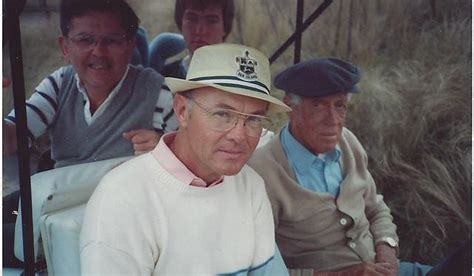A Quote by Carl Lewis
Track and field is the best way to reach out for kids. It doesn't matter how fast you are. You always want to beat someone.
Related Quotes
Figure out what you want, how you want to feel, whatever your motivation is, you have to figure it out. That's step one: where do you want to be? The next thing is just trying to get there and cutting yourself some slack along the way. You're going to have days when you veer off your path, then just get right back on. We all have cheat days, holidays, or celebrations, whatever or period when we can't work out as much as we like, and just do the best you can and when you can get back on track, get back on track.
At 36, I think I was pretty happy [actually], but here's the thing that I think happens... you're expected to be somewhere at 36, and there's that feeling: At this particular age - especially for women for God's sake - you should have this many kids, you should have a husband, or you should have this... and it's overwhelming. So that perpetuates the feeling that no matter where you are, no matter how much money you have, no matter how many kids you have, no matter how great they're doing, whether you want kids or not, married or not, it doesn't matter - you feel behind.
If the best way to learn to succeed is to fail as fast as possible, then the second-best way is to watch someone else fail as fast as possible. Watching someone else screw up is a kind of rehearsal for your own eventual downfall. A close observation of someone else's attempt to resolve a difficulty is a great way to acquire real-world insight into whether and when to deploy their method in your own times of trouble.
It changes from track-to-track, but when you are behind someone, you know after a few laps where they are weaker and stronger around the lap. You try to position yourself in the best possible way to attack them at a point they don't expect or at the point that they are just not as strong as you. That's how you try to get past.
There was a culture that came out of the self-esteem movement which was don't anybody keep track of the goals. The kids keep track, but nobody keep track of the goals because we don't want the kids to have the experience of losing. And in depriving them losing, thinking it scarred them to lose, we made losing so taboo, so unspeakable, that we instead made losing more scary to kids, not less scary.
Certainly, we all have within us the potential to live in a hugely different way. And how happy you can make yourself, I think, a lot depends on how much you beat yourself up about that; and how much you can, in some sort of providential way, console yourself and say, 'Well, it's all worked out for the best, in the best of all possible worlds.'






































